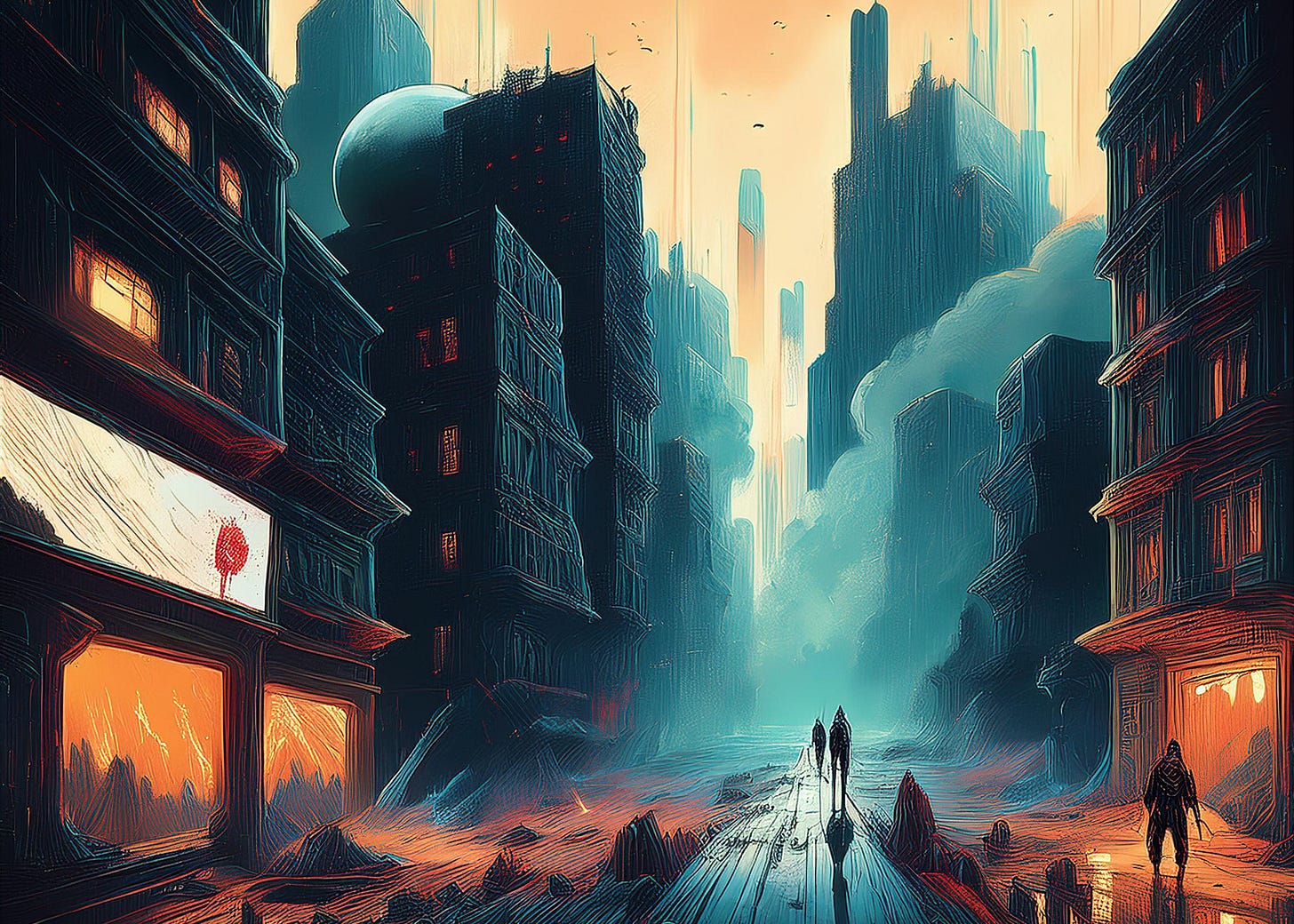Delete the Internet. Save Humanity?
Technology was supposed to improve our lives... What happened?
Larry Ellison, the Botox-filled face and figurehead of the Bay Area-based tech company Oracle, said that he envisions a world where “citizens will be on their best behavior because we’re recording and reporting everything that’s going on.”
This dystopian future is only possible due to the internet and its inevitable augmentation with artificial intelligence. In order for civilization to exist with some semblance of privacy, AI needs to heavily regulated, and if that isn’t possible, the development of the internet needs to be curtailed, if not destroyed entirely.
Technology is a neutral tool, but America isn’t a neutral nation. America is a pay-to-play oligarchy that masquerades as a democracy to gaslight the world into ignoring its brutal, imperialist aims and actions. Ellison’s vision of an AI-supplemented surveillance state essentially ensures that grassroots demonstration and acts of civil disobedience are dismantled long before they could ever develop into a threat to the state or the oligarchs it works on behalf of.
The Science Fiction genre has long predicted the rise of authoritarian governments that utilize technology to enforce and sustain the survival of corrupt politicians and their corporate backers, but many of these works were released long before the true potential of the ideas felt like a possibility, much less an inevitability.
Cyberpunk, a subgenre of Science Fiction, is defined by a core guiding philosophy when building future worlds for readers to explore: “High Tech, Low Life.” The term was coined by Bruce Sterling in a written foreword to William Gibson’s story “Burning Chrome.” Gibson rose to prominence with his debut novel, “Neuromancer,” often credited along with Ridley Scott’s Bladerunner as the first inceptions of popular media that depicted dark, dystopian futures where governments and corporations have merged in ways that make them indistinguishable for each other.
This darker subgenre of Science Fiction was a product of its time: the 1980s. America was introduced to Reaganomics, and the Reagan administration made good on its promises to begin an economic deregulation process that America still operates under today. In many ways, the 1980s was the beginning of the truly globalized world, where American workers had to directly compete (and often be replaced by) workers from developing countries; primarily China, which Reagan normalized trade relations with in the 1980s so American corporations could reap the benefits of exploiting China’s large population, relative poverty, and lower rate of pay.
However, the price of American has been depreciated so much, Trump is ushering in tariffs to supposedly bring manual labor back to America. It won’t work.
However, despite this era of American greed, technology hadn’t yet caught up to what some would describe as the “prophetic” visions of America’s Science Fiction authors of the ‘80s.
But now we’re on the verge of achieving the technological feats required to usher in a new standard of society where citizens are constantly surveilled at the behest of unelected billionaires and the corrupt politicians they empower.
There are only three, incredibly unlikely solutions to this impending problem: Revolution, Reform, or Ruin.
Revolution is a pretty straight forward concept. The people at the bottom, those most likely to fall victim to the worst excesses of mass surveillance, violently rise up and forcefully remove the oligarchs and their enablers. This isn’t ideal. Revolts are incredibly messy, bloody and turbulent.
Reform is the less dramatic option. Despite constant romanticization in certain leftists circles, even successful revolutions suck. Reform is a safer approach where you work within the system’s current framework to change legislation to slowly transition power from plutocrats to people. The problem with reform is that it takes forever, and rarely succeeds. Ask Bernie Sanders.
Ruin is more messy than reform, but ultimately less violent than a direct revolution. Ruin is the destruction of the internet and AI This would be a situation where people go war with technology itself, and would likely equate to the destruction of data centers or other essential telecommunication infrastructure that make mass surveillance possible.
It is unlikely that any of those events will occur, ensuring that one day we’re going to wake up in Larry Ellison’s in world where Big Brother isn’t a metaphor, but a fact of life.
If you like this article, please support it. It’s only $8 a month to support independent journalism and opinion pieces. You can do it. I believe in you.




I recently read an article where they commended the growth and advancements in UAE and China - but they completely glossed over the slave labor that got the work done. Hear me out, aren’t revolutions multi-generational? Movements start, politics change, but the people that answer for the crimes are rarely the ones that were in the house during. Think of House of Spirits, he was a Castro-like character that gained from the people with atrocious acts but when they finally came for him he was in his 70’s and it was his grandchildren that were dragged. When you’re writing about political change, is it from the POV of a single lifetime or is the POV from the country landscape? It’s not even 9am, Abe. Great article.